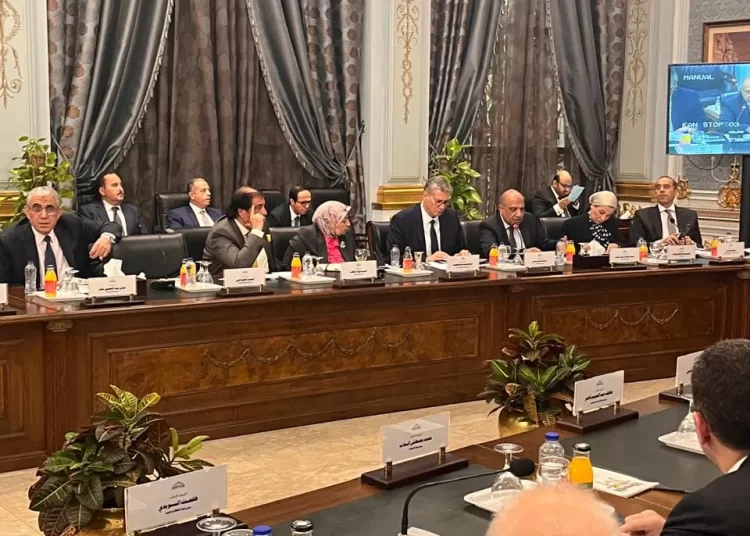CAIRO – Minister of Petroleum and Mineral Resources Karim Badawi stated that the ministry’s goal is to drill 110 exploratory wells for gas and oil with a total investment of dlrs 1.2 billion during fiscal year 2024-2025, as well as drilling 586 exploratory wells for gas and oil with a total investment of dlrs 7.2 billion by 2030, noting that there are currently 145 active commitment agreements in the field of oil and gas exploration, signed with 40 partners.
In a statement on Sunday before the parliamentary committee responsible for reviewing and discussing the new government’s program, the minister pointed out to the challenges in exploration activities, including regional competition for investment opportunities and accompanying economic incentives, and the slowdown in the implementation rates of exploration activities.
He outlined plans to overcome these challenges, such as introducing new incentives for current and future opportunities, including unconventional reservoirs, preparing a global marketing plan to attract new investments, and launching global bids through the Egypt Exploration and Production Gateway. This gateway provides digital data access to partners at all times and continuously offers new areas to global companies using a new methodology, making opportunities available to investors throughout the year, he added.
Badawi emphasised that Egypt’s strategic geographic location qualifies it to be a regional energy hub, supported by strong infrastructure including storage areas, pipeline networks, liquefaction facilities, refineries, and petrochemical plants.
He noted that Egypt is connected by pipelines with neighboring countries at multiple points, enabling it to become a gathering center for East Mediterranean gas. There is ongoing work with neighboring countries to accommodate all future surplus production, which will be received through existing and future facilities, enhancing the role of the East Mediterranean Gas Forum in expanding international cooperation frameworks to secure energy resources with neighboring countries, he stated.
Efforts are also being made to increase linkage lines with other neighboring countries to maximise Egypt’s potential.
In this context, the Minister mentioned that there is a study to add another floating storage and regasification unit (FSRU) in Ain Sokhna, with the possibility of using the current liquefaction facilities in Damietta and Idku in reverse. He highlighted that the challenges in this framework include the need for additional quantities of natural gas to meet requirements, operate refineries and petrochemical plants at full capacity, and utilize the maximum storage capacities and oil and gas transportation networks.
The minister added that Egypt possesses giant refineries, strategic storage areas with unprecedented capacities, petrochemical complexes, and oil and gas transportation networks covering all areas, connected with neighboring countries, and oil ports for trading and storing all products. A floating storage and regasification unit has been leased at the SUMED port in Ain Sokhna.
Regarding the rapid handling of the gap between resources and usage to keep the petroleum sector supporting the national economy, sustaining partners’ operations, and attracting sustainable investments, the minister explained that the widening financial gap is due to rising global prices, exchange rate fluctuations, and the reduced selling price for all sectors and consumers compared to the cost, causing a significant deficit in the petroleum sector’s balance of payments.
He pointed out the challenges arising from high global prices of natural gas and petroleum and exchange rate fluctuations, leading to increased costs for providing petroleum products and the significant price difference in the local market compared to the cost.
He outlined plans to overcome these challenges, including maximizing consumption efficiency, increasing production system efficiency to reduce barrel production costs, creating a sustainable investment environment for partners and investors in the sector, and working with the government to reach fair prices for selling petroleum products.






Discussion about this post